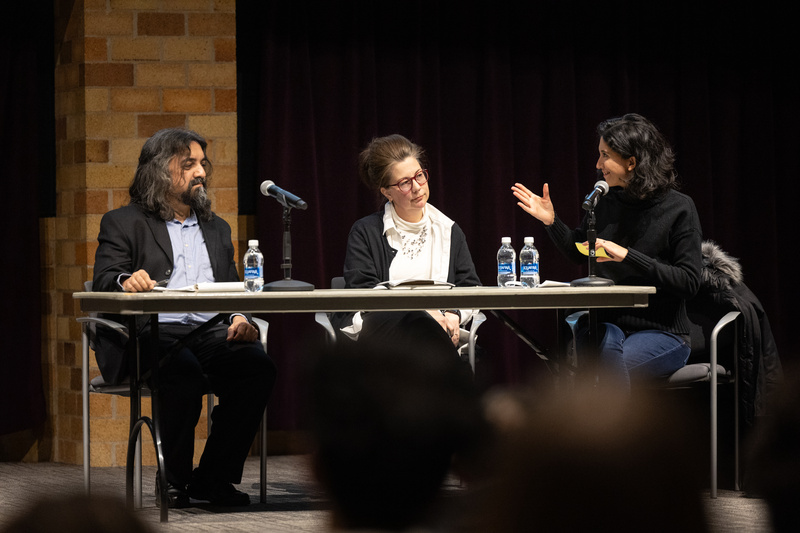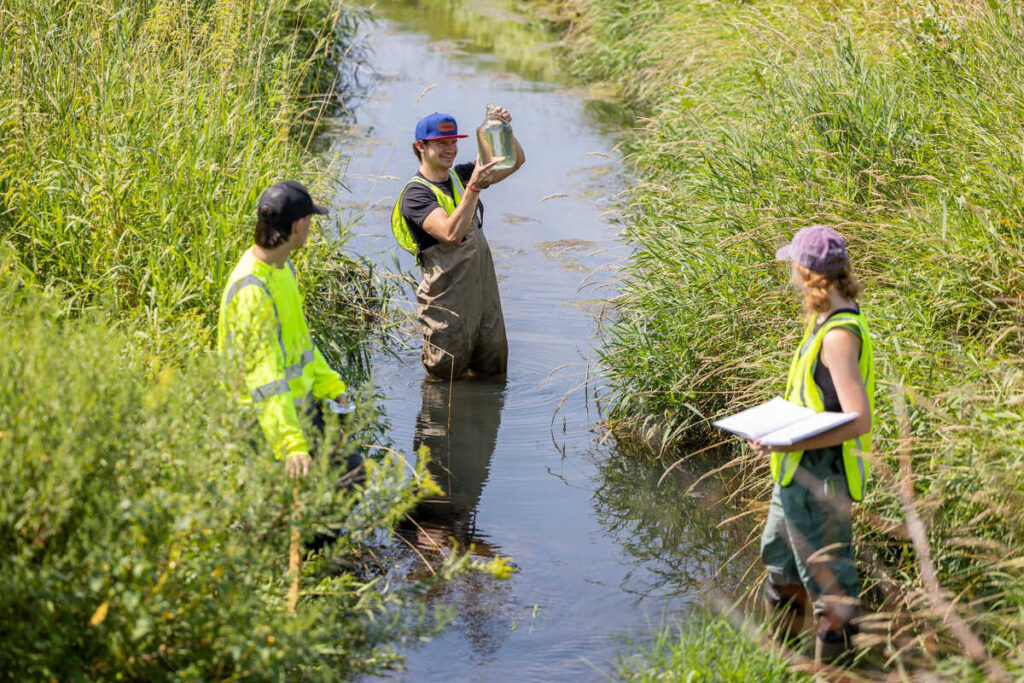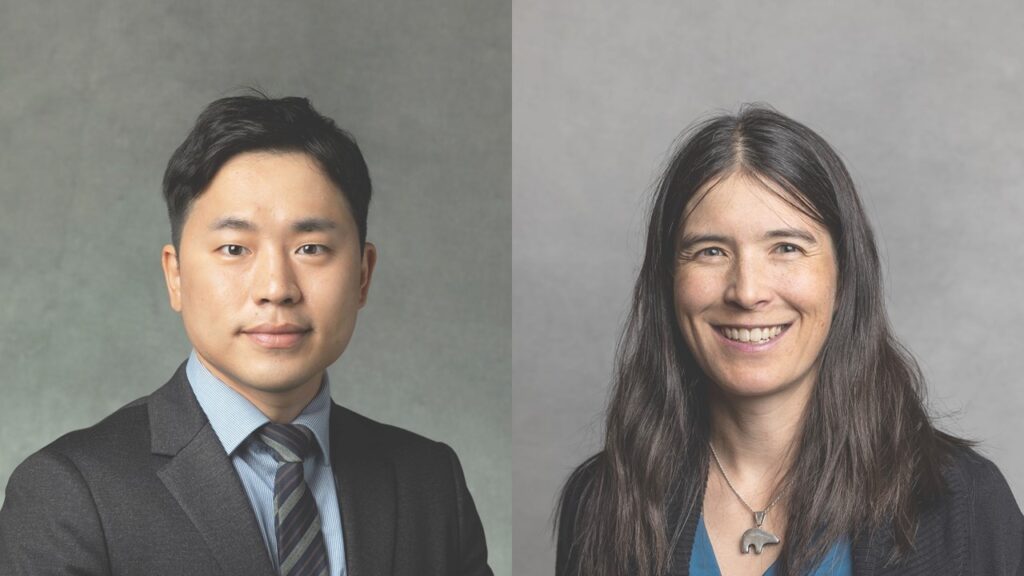With Israel and Palestine continuing to dominate world news, more than 200 St. Thomas students, staff and faculty recently attended an educational forum to learn more from College of Arts and Sciences experts about what one of them called “one of the most divisive” issues of our time.
Held Nov. 30, “Praying Over Jerusalem: Reflections on Palestine and Israel” was moderated by history professor Dr. Shaherzad Ahmadi and featured theology faculty Dr. Fuad Naeem and Dr. Kimberly Vrudny. Informed by their work in religion as it has intersected with the Middle East, Naeem and Vrudny presented historical and religious perspectives about the competing claims to the land.
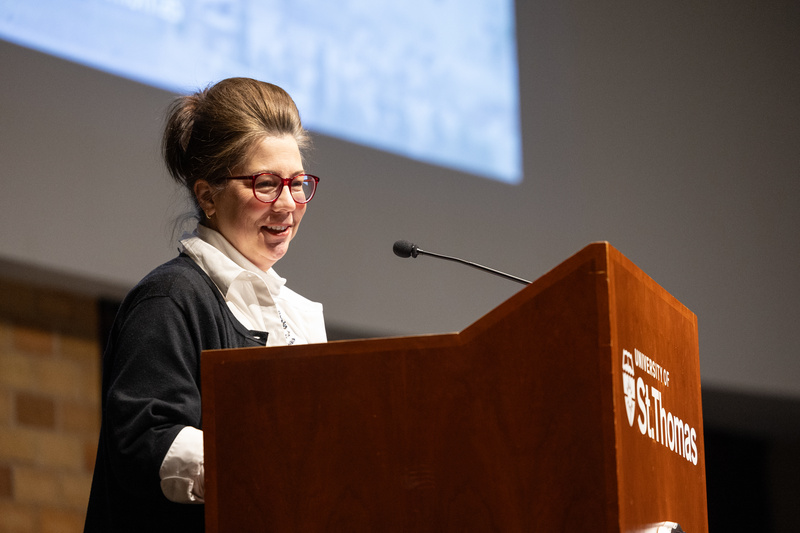
Vrudny reflected on her time studying abroad in Israel from August 1990 to January 1991 as the U.S. prepared for war in the Persian Gulf after former Iraqi leader Saddam Hussein invaded Kuwait. Her studies there provided her a perspective that informs her research today. The situation between Jews and Muslims, she said, “is extremely complicated,” with both groups of people being able to cite historical events dating back centuries that lead them to be engaged in a battle for the land.
Although Naeem called the issue “one of the most divisive of our time,” the participants sought to model a respectful discourse that focused on shedding light on how the situation in the region has escalated over the decades. Over the course of two hours, the speakers touched on many of the similarities found in the situations of both the Jewish and Muslim peoples in the region – including the fact that both groups point to religious texts that they say justify their claims to the land.
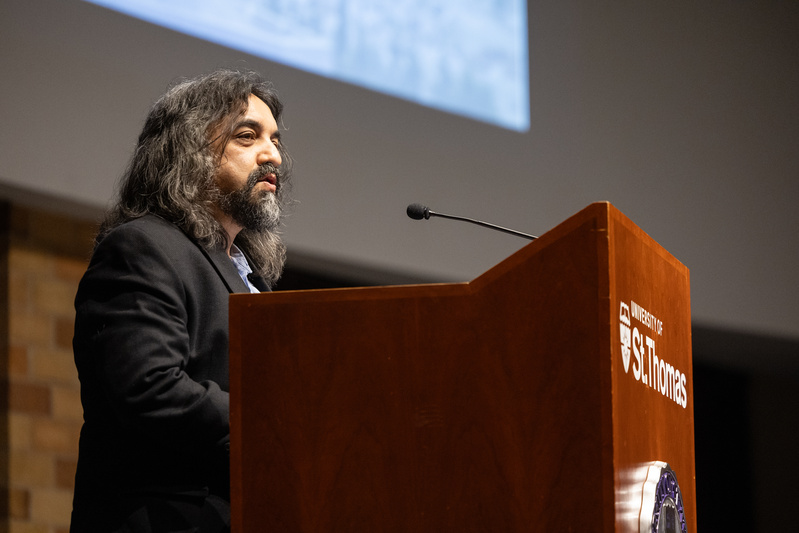
Naeem, for example, mentioned how the Quran reflects that the region is sacred to Muslims, while Vrudny shared how the Jewish community – the Israelites – recounted their history in written form beginning in the ninth BCE, in texts that would be edited together to form the Hebrew Bible.
The situation’s roots go beyond religious beliefs, however. The professors elaborated on the historical persecutions faced by both groups. Jewish people, Naeem pointed out, were the principal religious minority in Europe, having been persecuted there for centuries, leading to the Holocaust. Muslims, he added, were seen as a political and religious enemy on the borders of Europe and were often demonized.

During the presentation, the three faculty members showed a map of the region and discussed how the inhabitants of the region had been ruled throughout history by outsiders from Assyrians, Babylonians, Persians, and Romans, and even, in modern times, by the British.
With both groups having been victims and at one point or another pushed from their ancestral lands, the faculty concluded that there is a moral obligation to ensure that Jewish life and Muslim life are protected, including in the U.S., where there has been a recent rise in Islamophobia and antisemitism.
